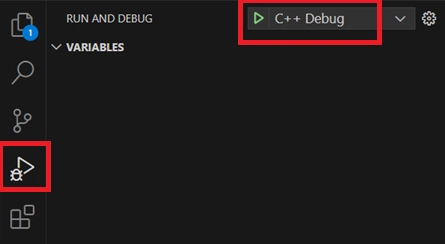Introduction
When compiling programs in C or C++ using cc or c++, you may find yourself needing to use a different linker than the default one. For instance, your version of GCC or Clang might link against /usr/bin/ld. In many scenarios, developers want to test their applications with alternative linkers, like /usr/local/bin/ld, for various reasons, including performance evaluation or compatibility testing. In this article, we’ll explore how to specify a different linker without running separate compilation steps.
Why the Default Linker Matters
The linker plays a crucial role in the compilation process, as it's responsible for combining different object files into a single executable. By default, compilers like GCC and Clang use a hard-coded linker, typically located at /usr/bin/ld on Unix-like platforms. While this is usually sufficient, you might encounter instances where you want to test with a different linker.
In order to change the linker, merely setting an environment variable like LD does not apply to compiler invocations. Instead, you usually have to dig deeper. Let's discuss a viable method to change the linker effectively.
Using the -B Option for GCC and Clang
Fortunately, both GCC and Clang support the -B option, which allows you to specify directories for the linker and other tools.
Syntax for the -B Option
To use a different linker, you can use the -B option as follows:
cc -B/usr/local/bin/ foo.c -o foo
In this example, foo.c is compiled and linked using the linker located in /usr/local/bin/. The -B option essentially tells GCC or Clang to look in the specified directory for binary utilities, including the linker.
Practical Example
Consider you have a simple C program that you want to compile and link using a different version of the linker located at /usr/local/bin/ld. Follow these steps:
-
Prepare Your C File: Create a simple C source file named
hello.c.#includeint main() { printf("Hello World!\n"); return 0; } -
Compile and Link with Your Custom Linker:
cc -B/usr/local/bin/ hello.c -o hello -
Run Your Application:
./helloThis will execute your compiled program, linking it with the specified linker.
Alternative Methods
If the -B option does not resolve your issue, here are some other alternatives:
Use a Makefile
If you're building a larger project using a Makefile, you can specify the linker by setting the LD variable in your Makefile:
LD=/usr/local/bin/ld
all:
$(CC) -o foo foo.o
Renaming the Default Linker
As a last resort, some users rename the default linker temporarily to force the compiler to rely on your specified linker. This method is generally not recommended as it can lead to unexpected behavior and issues with system binaries.
sudo mv /usr/bin/ld /usr/bin/ld.tmp
Note: Ensure that you revert back to the default linker after testing to avoid system-wide issues.
Frequently Asked Questions
Can I specify the linker directly in the command line?
No, the command line options like --linker do not exist for GCC or Clang. You must use methods like -B or an appropriate Makefile setup.
What if my compiled program doesn't run correctly?
If using a different linker results in errors, ensure that the linker you specified is compatible with your binaries or libraries. Reports of linking errors should provide clues as to what might be wrong.
Are there performance differences between linkers?
Yes, different linkers may have varying performance characteristics. Testing your application with different linkers can provide insights into optimization opportunities.
Conclusion
While specifying a different linker directly with cc or c++ might seem daunting, using the -B option or defining the LD variable in a Makefile can comfortably meet your needs. This enables you not only to streamline your build process but also effectively test your applications with alternate linkers. Always remember to verify compatibility and performance before finalizing your build setup.

